As we journey through the golden years of life, prioritizing nutrition becomes increasingly crucial for maintaining vitality and well-being. Among the essential components of a healthy diet, healthy fats play a pivotal role, offering numerous benefits. Fats, often misunderstood, are essential for overall health, particularly as we grow older. They play a vital role in maintaining cell integrity, hormone regulation, and brain function. In this blog post, we’ll explore the significance of healthy fats for aging adults, discuss the types of healthy fats, examine the recommended fat intake for seniors, and unveil the top 10 sources of healthy fats to incorporate into their diets.
Types of Healthy Fat:
Healthy fats come in various forms, each offering unique benefits:
- Monounsaturated Fats: Found in foods like avocados, nuts, and olive oil, monounsaturated fats are renowned for their heart-protective properties and ability to reduce LDL cholesterol levels.
- Polyunsaturated Fats: Omega-3 and omega-6 fatty acids fall under this category, found in fatty fish, flaxseeds, and walnuts. These fats are vital for brain health, reducing inflammation, and supporting cardiovascular function.
- Saturated Fats: While often demonized, certain saturated fats, such as those found in coconut oil and grass-fed butter, can be part of a healthy diet when consumed in moderation.
Recommended Fat Intake:
The dietary needs of aging adults differ from those of younger individuals. While there isn’t a one-size-fits-all recommendation for fat intake, seniors should focus on consuming healthy fats while moderating their overall calorie intake to maintain a healthy weight. As metabolism slows with age, it’s essential to prioritize nutrient-dense foods, including sources of healthy fats, to support overall well-being.
Top 10 Healthy Fats for Aging Adults:
1. Avocado
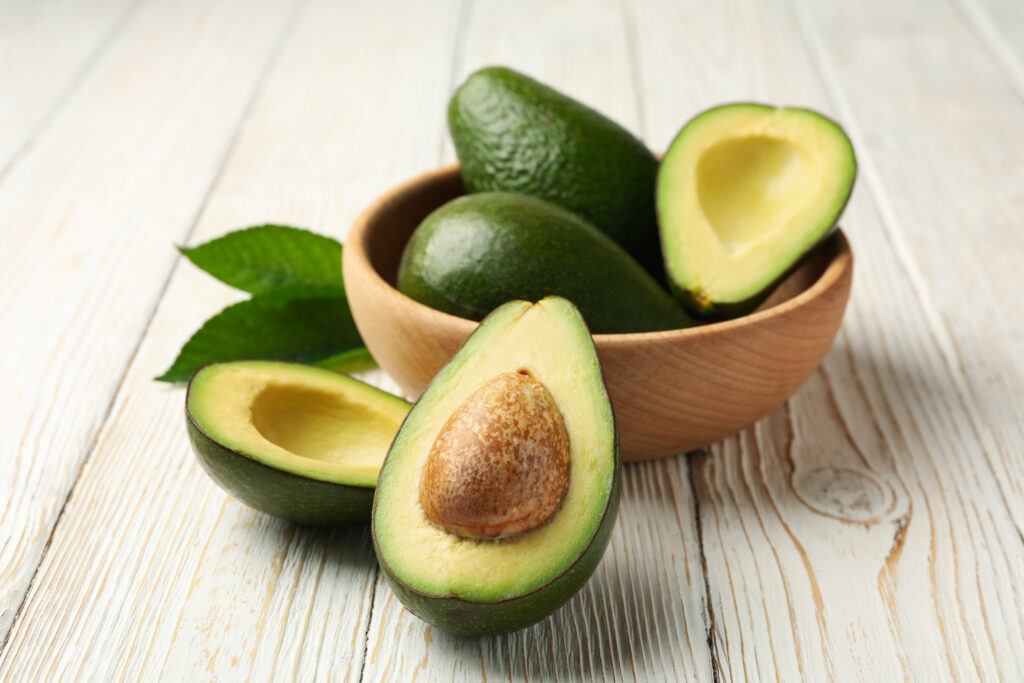
Avocado is regarded as a healthy fat due to its high concentration of monounsaturated fats, such as oleic acid, which are beneficial for heart health by lowering LDL (bad) cholesterol levels and increasing HDL (good) cholesterol levels. This can help reduce the risk of cardiovascular diseases commonly associated with aging. Additionally, the presence of antioxidants like lutein and zeaxanthin in avocados can benefit seniors by protecting against age-related eye conditions such as macular degeneration.
2. Fatty fish
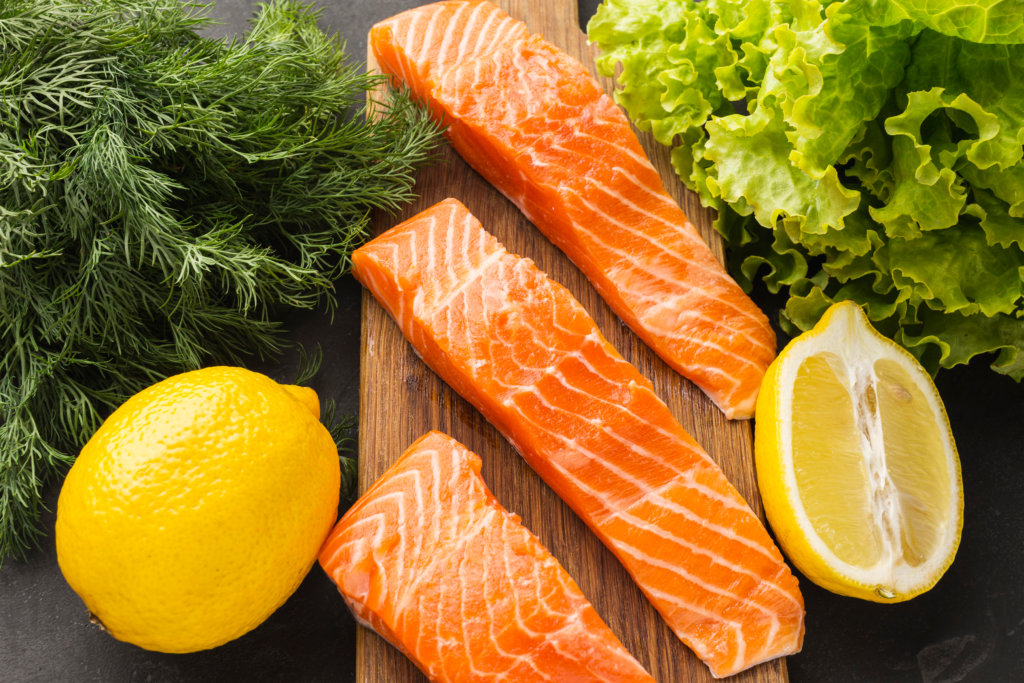
Fatty fish such as salmon, trout, sardines, and herring are rich sources of healthy fats, particularly omega-3 fatty acids like EPA (eicosapentaenoic acid) and DHA (docosahexaenoic acid). These essential fatty acids are renowned for their numerous health benefits, making fatty fish a cornerstone of a healthy diet for seniors. Omega-3 fatty acids are known to support heart health by reducing inflammation, lowering triglyceride levels, and improving blood vessel function, thus reducing the risk of cardiovascular diseases common among seniors.
Regular consumption of fatty fish can contribute to improved joint health, reduced inflammation in conditions like arthritis, and enhanced mood and mental well-being.
3. Nuts and Seeds
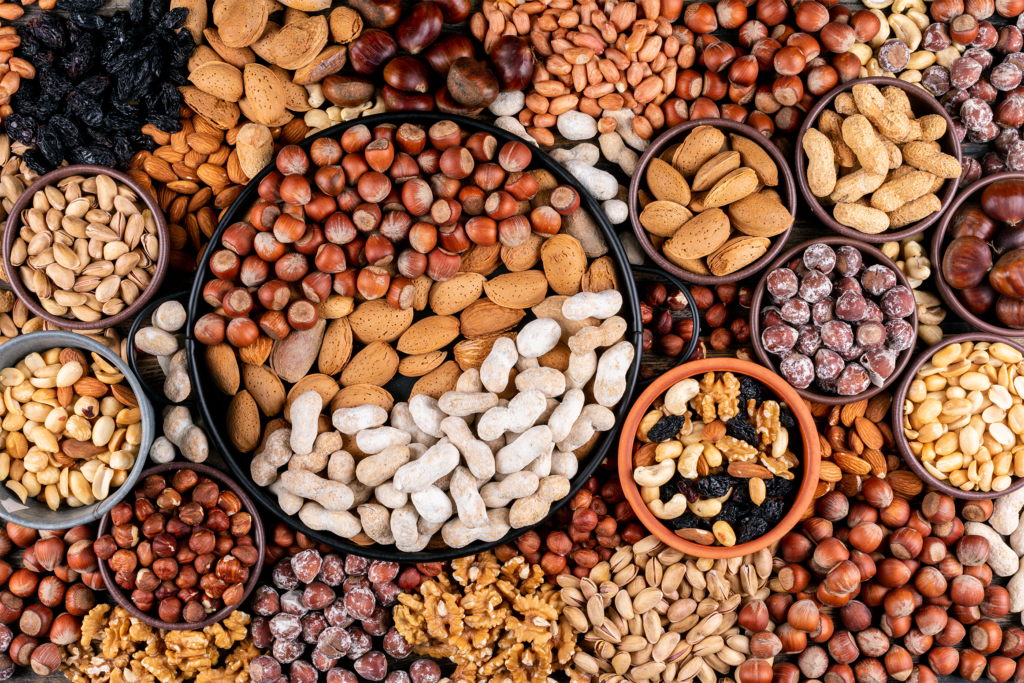
Nuts and seeds are regarded as healthy fats due to their high content of unsaturated fats, including both monounsaturated and polyunsaturated fats. These fats are beneficial for heart health, as they can help lower LDL (bad) cholesterol levels and reduce the risk of cardiovascular diseases, which are prevalent among seniors. Additionally, nuts and seeds are rich in essential nutrients such as vitamins, minerals, and antioxidants, which contribute to overall health and well-being.
4. Olive Oil
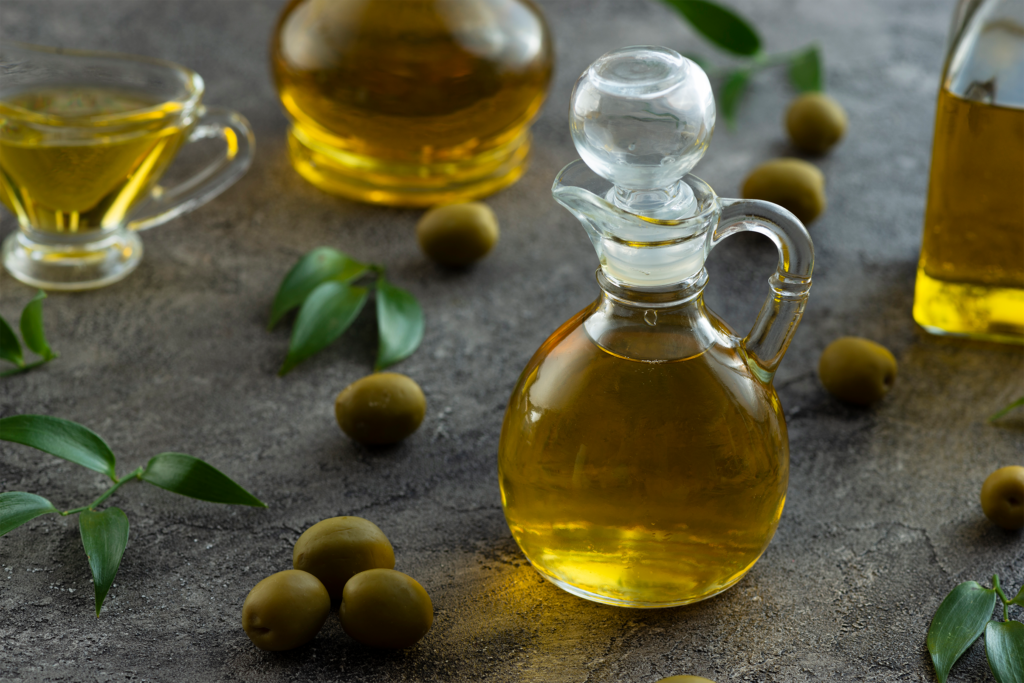
Olive oil is widely recognized as a healthy fat primarily due to its high concentration of monounsaturated fats, particularly oleic acid. These fats have been extensively studied for their numerous health benefits, particularly in supporting heart health. Additionally, olive oil is rich in antioxidants, such as vitamin E and polyphenols, which help combat inflammation and oxidative stress in the body.
5. Coconut Oil
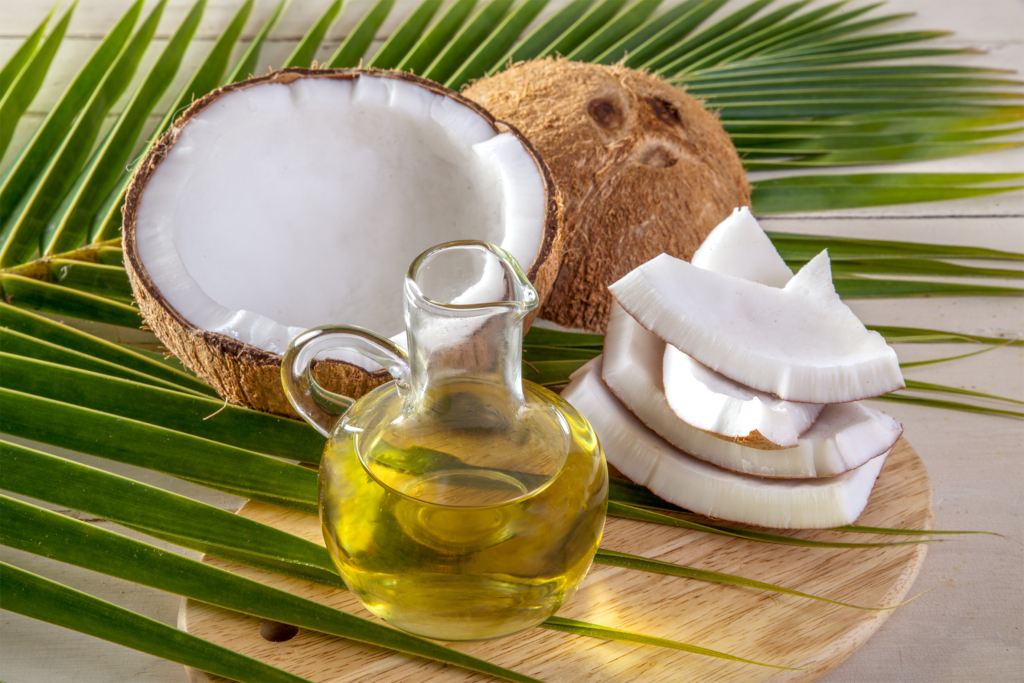
Despite its saturated fat content, coconut oil contains medium-chain triglycerides (MCTs), which may offer various health benefits. Coconut oil is often praised as a healthy fat due to its unique composition of medium-chain triglycerides (MCTs), particularly lauric acid. MCTs are known for their ability to be quickly absorbed and metabolized by the body, providing a rapid source of energy. Additionally, coconut oil has antimicrobial and anti-inflammatory properties, which can help support immune function and reduce the risk of infections and inflammatory conditions commonly associated with aging.
6. Flaxseed Oil
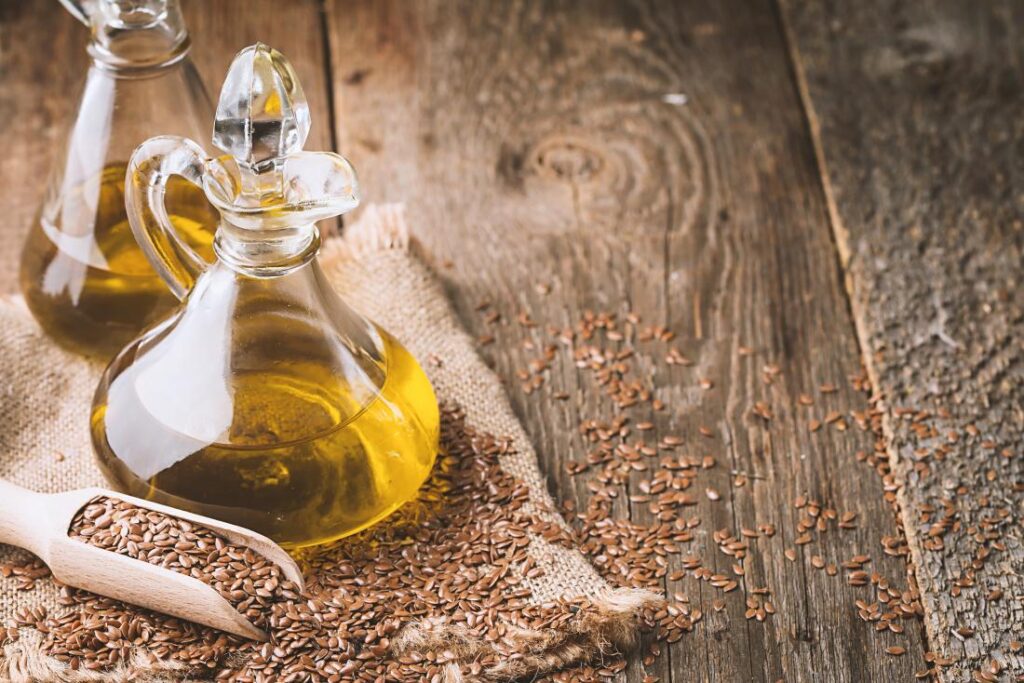
Flaxseed oil is considered a healthy fat primarily due to its high concentration of alpha-linolenic acid (ALA), a type of omega-3 fatty acid. Omega-3 fatty acids are well-known for their numerous health benefits, particularly in supporting heart health and reducing inflammation. ALA has been shown to reduce the risk of cardiovascular diseases by lowering levels of LDL (bad) cholesterol and triglycerides while increasing levels of HDL (good) cholesterol.
7. Dark Chocolate

Dark chocolate is considered a healthy fat due to its high content of cocoa solids, which are rich in monounsaturated fats and polyphenols. These fats, particularly oleic acid, contribute to heart health by improving cholesterol levels and supporting cardiovascular function. Additionally, the polyphenols in dark chocolate have antioxidant properties that help reduce inflammation and protect against oxidative stress, which can contribute to age-related diseases.
8. Eggs

Eggs are considered a healthy fat source due to their unique combination of high-quality protein, essential vitamins, minerals, and healthy fats. While eggs do contain some saturated fat, they are also rich in monounsaturated and polyunsaturated fats, particularly omega-3 fatty acids. These fats play a crucial role in supporting heart health by improving cholesterol levels and reducing the risk of cardiovascular diseases. Additionally, eggs are nutrient-dense, containing essential nutrients like vitamins D, B12, and choline, which are vital for bone health, nerve function, and cognitive health, respectively.
9. Yogurt
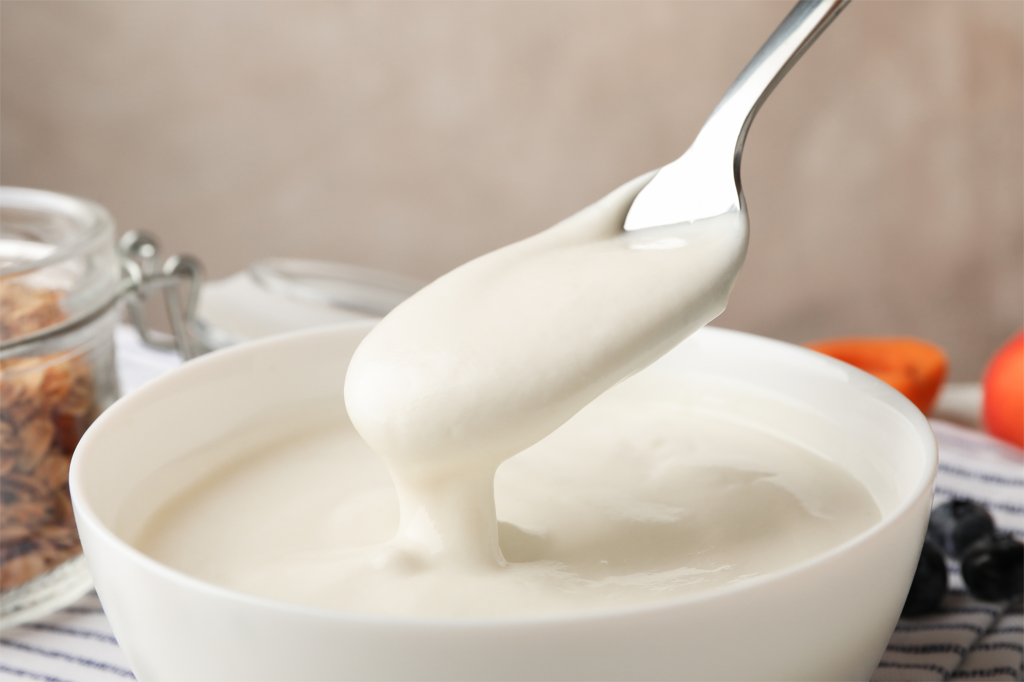
Yogurt is considered a healthy fat source primarily due to its content of beneficial fats, particularly when opting for full-fat varieties. Additionally, yogurt is rich in probiotics, which are beneficial bacteria that support gut health and digestion, helps maintain a healthy digestive system and alleviate issues such as constipation and bloating. Furthermore, yogurt is an excellent source of calcium and vitamin D, essential nutrients for bone health.
10. Cheese

Cheese is considered a healthy fat source due to its high content of protein, calcium, vitamins, and minerals, in addition to its fat content. While cheese does contain saturated fats, it also provides essential nutrients that are beneficial for seniors’ health. Calcium and vitamin D found in cheese are crucial for maintaining bone strength and density. Certain types of cheese, such as feta, goat cheese, or Parmesan, contain higher concentrations of healthy fats, such as monounsaturated fats, which have been associated with heart health benefits, including reducing the risk of cardiovascular diseases.
Incorporating healthy fats into the diets of aging adults is paramount for maintaining optimal health and well-being. By embracing sources like avocados, salmon, nuts, and olive oil, seniors can nourish their bodies, support brain function, and reduce the risk of chronic diseases. Let’s recognize the role of healthy fats in promoting vitality and longevity, ensuring that aging adults can thrive at every stage of life.
